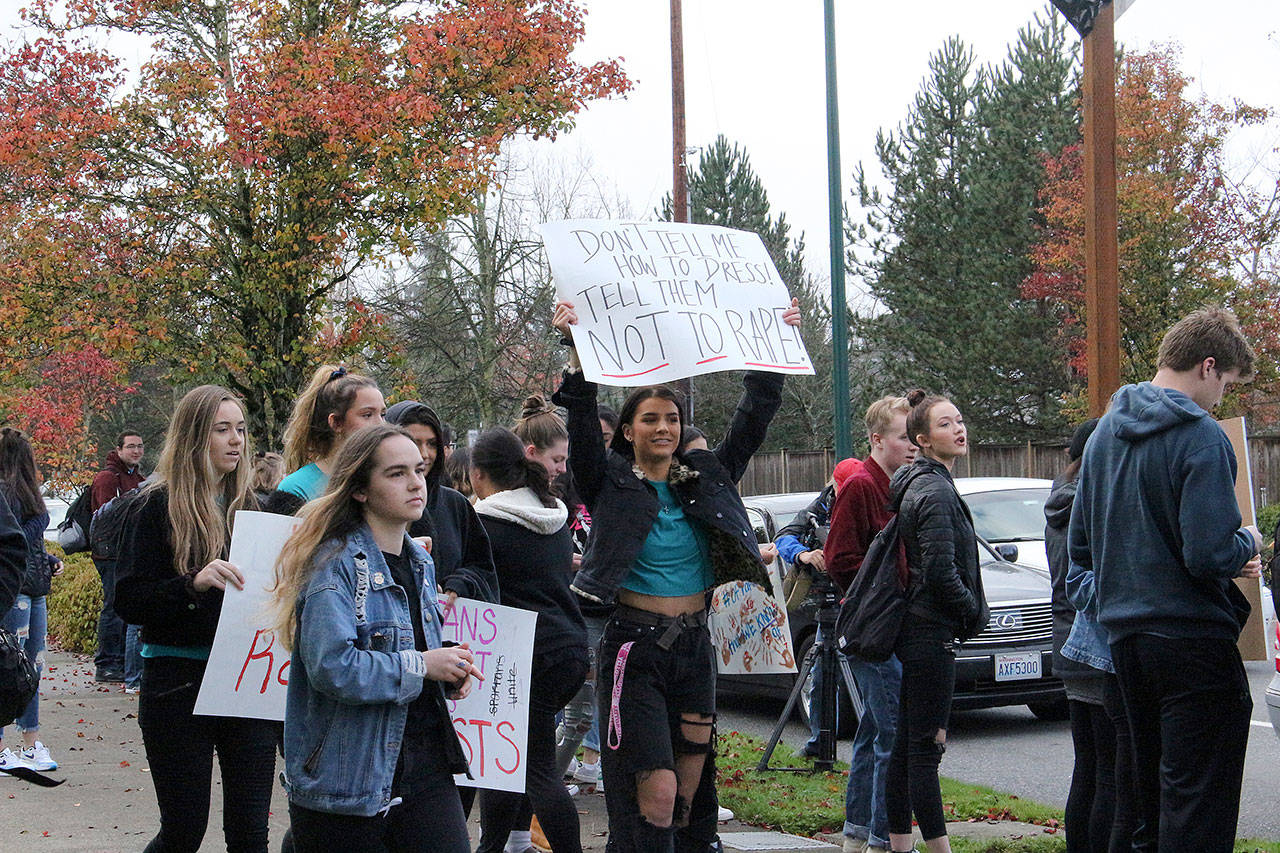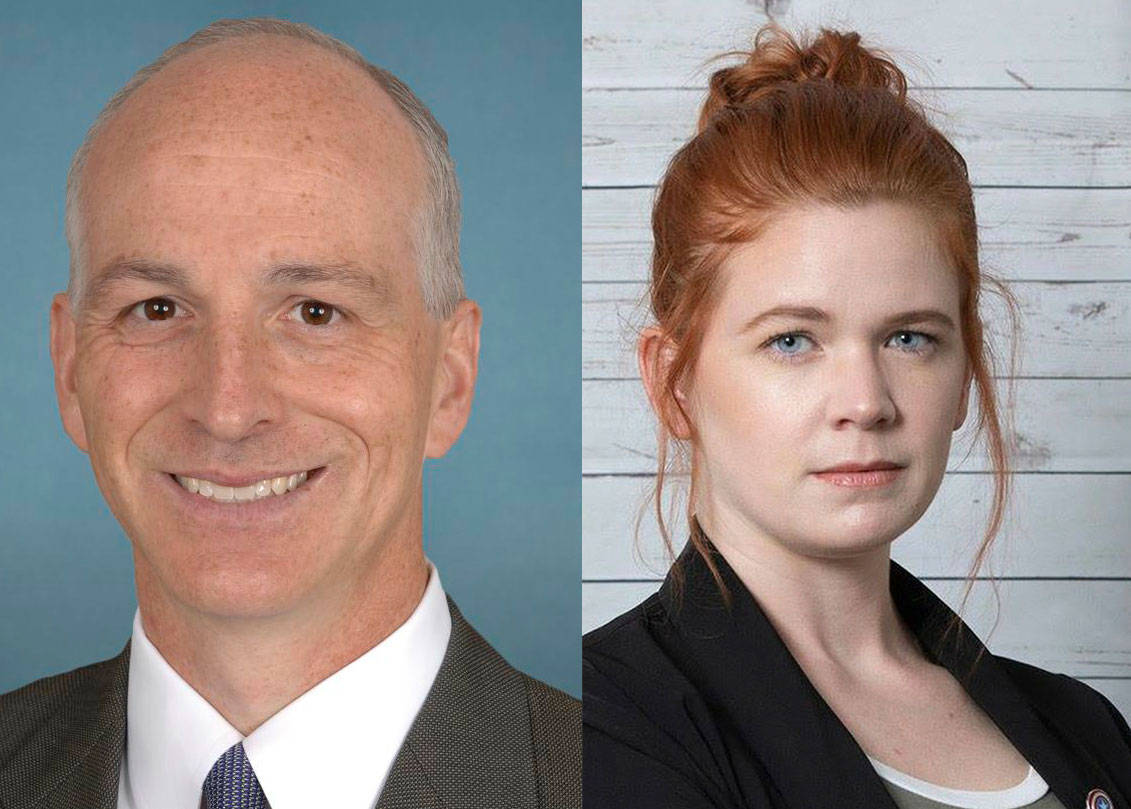1. With a recent purchase of 31 acres in Kent, Blue Origin has signaled its intent to continue focusing its growth in the city.
The four parcels, valued at $14.1 million, are across the street from the aerospace company’s existing facility, according to property sales records filed Dec. 21 with King County.
Blue Origin, owned by Amazon founder Jeff Bezos, continues to expand as it aims to carry passengers far into space. The company sent up a flight capsule test on its New Shepard rocket in mid-December in Texas.
“The city of Kent is thrilled to have such an exciting company as Blue Origin call our city home,” said Kurt Hanson, Kent’s Economic and Community Development deputy director, in a Thursday email. “Their headquarters here has approximately 750 employees. With this property acquisition we expect that number to increase.”
The Barnier family, under the name of Bar-Gem LLC, sold the property to Blue Origin.
“It is currently undeveloped,” Hanson said about the 31 acres. “The company plans to build a new manufacturing facility to complement their existing operations in Kent.”
Blue Origin’s current facility covers about 260,000 square feet on 26 acres. Engineering, manufacturing and business teams work at the facility. Kent Reporter
2. The beginning of 2018 brings an end to the development moratorium in almost every area of Issaquah.
The Issaquah City Council had enacted the moratorium as an emergency ordinance at the beginning of September 2016. Councilmembers stated that a pause in development was needed because construction was not following the standards set by the Central Issaquah Plan in 2012—namely architectural fit with the community, urban design, vertical mixed use, parking, affordable housing and district vision. Since then, the administration has been studying and defining these six work items.
At its Dec. 18 meeting, the city council voted unanimously to lift the citywide moratorium on certain development in all areas of the city except for the designated Central Issaquah area. At the time of the meeting, the moratorium had been in effect for 468 days, having been extended from its original six months in February and then August of this year.
All categories are currently completed apart from affordable housing, scheduled to come back to council in January 2018, and district vision, which is scheduled to be finished in April 2018. Since district vision relates specifically to Central Issaquah, city staff recommended maintaining the moratorium there while lifting it throughout the rest of the city. Issaquah-Sammamish Reporter
3. King County Prosecutors late last month declined to prosecute the rapper Nelly for allegedly raping a woman in his tour bus on the parking lot of the Auburn Walmart store during the early morning hours of Oct. 6, 2017. They say his alleged victim refused to testify.
Now the 22-year-old Seattle woman and University of Washington student who alleged the rape is suing Nelly for sexual assault and defamation, the latter because she claims that Nelly and his team conducted a smear campaign against her after news of the incident went public.
According to reports, Nelly, whose real is name is Cornell Hanes Jr, plans to sue the woman to restore his reputation.
Court documents state that the woman was with friends at Aston Manor, a Seattle night club where Nelly was performing on the night in question. The woman worked there but she was not working that night. According to court documents, the rapper invited the woman to a party after the show and she climbed into a van with him. In the parking lot of the Auburn Walmart, according to court documents, the two got out of the van and entered Nelly’s tour bus and then his bedroom, where they allegedly engaged in sexual activity. In court documents, the woman said Nelly refused to wear a condom, and he started assaulting her. According to what the woman said in court documents, when she started screaming that she wanted off, a member of Nelly’s party allegedly pushed her off the bus. She said Nelly then threw a $100 bill at her, and said, “Bye, bye.” Auburn Reporter
4. Puget Sound Energy announced plans to reduce its carbon emissions in half by 2040. The Bellevue-based utility company, which serves energy to more than 1.5 million homes and businesses in the Puget Sound area, said they will accomplish this through a variety of different initiatives.
With the retirement of half the Colstrip Power Plant units in Montana by 2022 and the shutdown of the Centralia Power Plant in 2025, PSE estimates it will be “nearly 90 percent clean,” or non-coal generated, and on the path to 100 percent “clean” by the early 2030s.
The company says it has also made investments in new products and renewable resource development, developed new programs like “Green Direct” that allows large-scale energy customers to subscribe to their renewable energy projects, and has focused on cleaner transportation.
The Sierra Club isn’t buying it.
“This is more smoke and mirrors than an actual commitment to get off dirty fossil fuels, reduce climate pollution and meet our state’s climate goals,” Doug Howell, a senior campaign representative for the environmental group’s Beyond Coal campaign, said. “Puget Sound Energy is likely to exceed this commitment under the status quo, as previous commitments to retire some of its dirty coal plants go ahead in the coming years.”
Howell said the company’s commitment to reduce carbon emissions still gives them enough breathing space to build new fracked gas plants and still doesn’t commit them to ending their use of the “dirtiest coal plant in the American West.”
That plant Howell is referring to is the other units of the Colstrip Power Plant in Montana, as units 3 and 4 do not have a retirement date, despite repeated attempts from the Sierra Club to get PSE to commit to one. Bellevue Reporter








